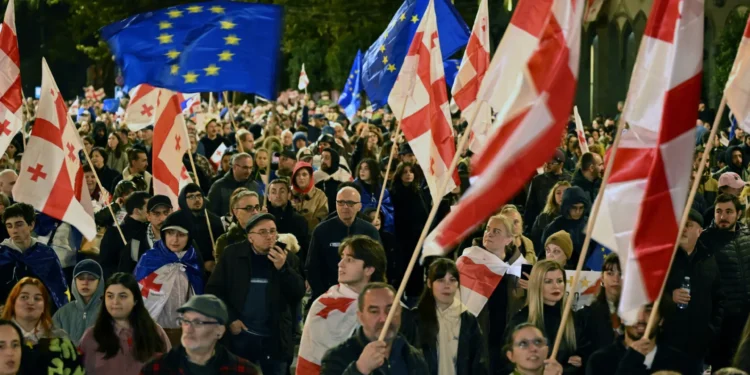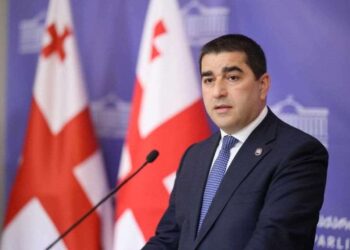On March 7, marking the 100th consecutive day of pro-European protests, a series of coordinated rallies are scheduled across Tbilisi and various regions of Georgia. These demonstrations underscore the persistent public dissent against the government’s decision to suspend European Union (EU) accession talks until 2028.
“On the 100th day of the mass protest, a lot of Georgian citizens will gather on Rustaveli,” say organizers.
“We will once again demand the dismissal of the occupation regime and show everyone that we will not tolerate the usurpation of power and the establishment of a dictatorship! We will fight to the end and will not allow the future of the country to be stolen!
Spread the information and invite all your friends and acquaintances to the event.”
The full schedule is the following:
March 7 – Day 100
18:00 – March: Architects for Solidarity! from Tbilisi City Hall
19:00 – Joint march of students, lecturers and professors from TSU First Building
19:00 – Protest at the Public Broadcaster
19:00 – March: Freedom for prisoners of conscience from the yard of the Public Broadcaster
20:00 – Day 100 of protest: To the end! – Near the Parliament
21:00 – Public lecture by the protest audience – Near the monument of Ilia and Akaki
21:30 – Public discussion: 100 days of struggle against the Russian regime – Achievements, challenges, future steps – In front of the Georgian Museum of Fine Arts.
In the regions, protests are scheduled to be held in Akhmeta, Akhaltsikhe, Batumi, Zugdidi, Telavi, Chkhorotskhu and Kutaisi.
The protests erupted in late November 2024, following the ruling Georgian Dream party’s announcement to halt EU negotiations, a move perceived by many as a deviation from the nation’s longstanding pro-European trajectory. The initial demonstrations in Tbilisi saw thousands taking to the streets, leading to clashes with law enforcement agencies. Riot police employed water cannons, tear gas, and pepper spray against protesters, resulting in numerous injuries and arrests.
The sustained nature of these protests reflects a deep-seated public desire to realign Georgia with its European aspirations. As the demonstrations reach their 100th day, the unity and resilience of the Georgian populace remain evident, signaling a continued commitment to advocating for the nation’s European integration.














